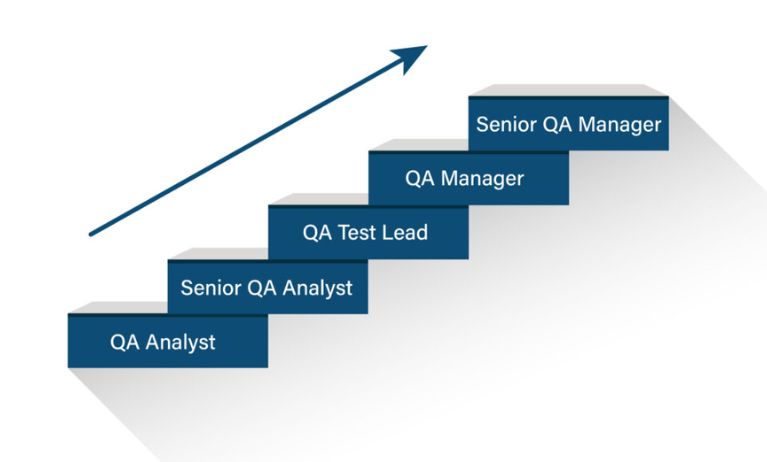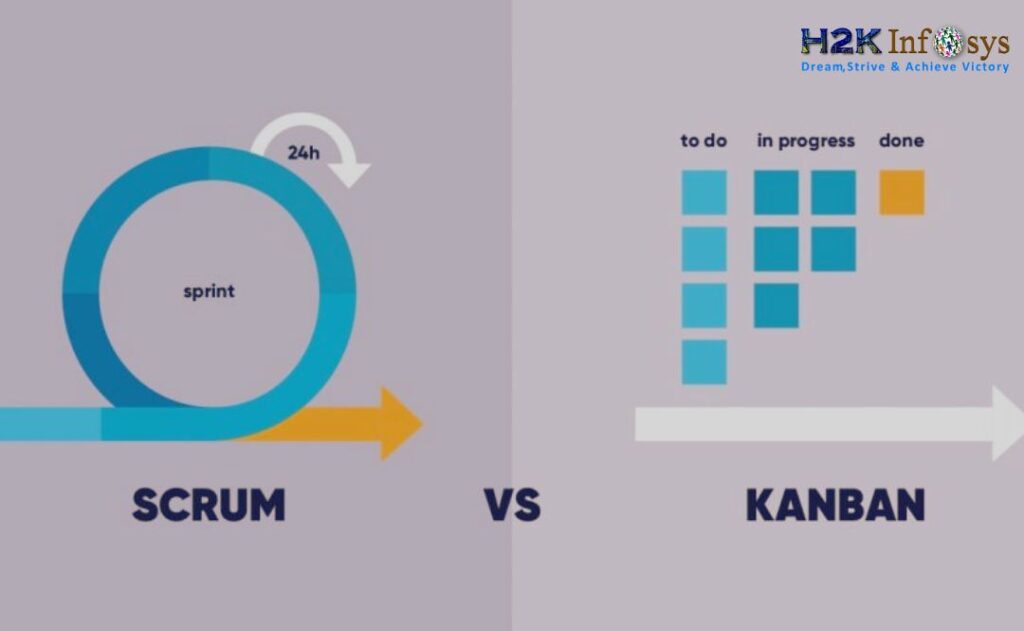Introduction
The Career Path of a Business Analyst roles are pivotal in today’s dynamic business environment. Choosing a career path can be a daunting task, especially in such a rapidly evolving field. With the continuous evolution of business needs and technological advancements, the role of a Business Analyst has become increasingly vital, helping companies navigate changes and stay competitive.
If you’re considering a career in Business Analysis, it’s essential to understand the various paths within this field. The career path of a Business Analyst is diverse, with opportunities spanning multiple industries and specialties.

Exploring the Career Path of a Business Analyst: Key Responsibilities and Growth Opportunities
Business Analysts (BAs) play a vital role in shaping an organization’s success by analyzing operations and identifying areas for improvement. The career path of a Business Analyst involves bridging the gap between business objectives and technological solutions, working across departments to enhance efficiency, productivity, and profitability. As they guide organizations through transitions, streamline processes, and implement impactful strategies, Business Analysts drive sustained growth and foster operational excellence.
Understanding the Role of a Business Analyst
One common misconception in the career path of a Business Analyst is confusing their role with that of a Data Analyst. While there are some overlaps, these roles have distinct focuses. Data Analysts typically concentrate on interpreting data, generating insights, and supporting decision-making through data-driven evidence.
In contrast, Business Analysts engage in broader problem-solving, process improvement, and strategy development. They work directly with stakeholders to understand organizational needs, define requirements, and transform business objectives into actionable plans that drive value. The career path of a Business Analyst involves skills in strategic thinking and communication, aligning with long-term business goals.
The Career Path of a Business Analyst: Key Stages
- Entry-Level Roles: Junior Business Analyst In the early stages, a Junior Business Analyst assists in gathering requirements, documenting processes, and conducting basic data analysis. This role offers a strong foundation for understanding how businesses operate and how technology can be leveraged to meet organizational goals. Learning foundational skills in communication, documentation, and problem-solving is essential here.
- Mid-Level Roles: Business Analyst or Associate Consultant With a few years of experience, a Business Analyst takes on more responsibility, including direct engagement with stakeholders, deeper involvement in project planning, and more complex data analysis. This is where BAs start leading workshops, analyzing workflows, and proposing solutions that directly impact business performance. Developing skills in project management and advanced data analysis tools is beneficial at this stage.
- Advanced Roles: Senior Business Analyst, Consultant, or Project Manager At this level, Business Analysts work on high-stakes projects and may lead teams. They play a strategic role, identifying long-term opportunities for organizational growth and innovation. Senior BAs often focus on developing best practices, optimizing processes, and mentoring junior team members. Skills in strategic thinking and leadership are critical as they advance in their career path.
Essential Skills for a Successful Business Analyst Career
The career path of a business analyst is greatly supported by a diverse skill set, which includes strong analytical abilities, effective communication skills, and proficiency with business modeling tools. Successful BAs are skilled in stakeholder management, requirements gathering, and process modeling, which help them deliver value across projects.
Training and Certifications to Accelerate Growth
To advance in this field, aspiring Business Analysts often seek specialized training and certifications, such as Certified Business Analysis Professional (CBAP) or PMI-PBA. These credentials validate expertise in business analysis and can significantly enhance the career path of a business analyst, opening doors to senior roles and specialized opportunities.
Pursuing an Online business analyst training course can be an efficient way to build relevant skills, gain practical experience, and develop a strong foundation. By following a well-structured learning plan, professionals can navigate the career path of a business analyst with confidence, positioning themselves for long-term success in this evolving field.
Key Career Paths for Business Analysts
As you complete your Business Analyst training and placement, consider exploring one of these promising career paths:

Data Business Analyst
A Data Business Analyst specializes in using data to inform business decisions. They work closely with data sets, analyzing trends, identifying patterns, and creating strategies that can be implemented to improve business processes. Unlike a traditional Data Analyst, a Data Business Analyst does not require extensive knowledge of advanced technical skills such as machine learning or programming languages. Instead, they focus on understanding data in the context of business needs and translating it into actionable insights.
Data Business Analysts play a critical role in shaping the strategic direction of a company by providing data-driven recommendations. Their ability to bridge the gap between raw data and business goals makes them invaluable assets in today’s data-centric world. Free Business Analyst training and placement programs can effectively prepare you for this role, equipping you with the necessary analytical and communication skills.
Information Security Analyst
As the digital landscape evolves, companies are increasingly vulnerable to cyber threats. This shift has created a growing demand for Information Security Analysts, professionals who focus on protecting an organization’s data from security breaches. With Business Analysis training, you can transition into this role by leveraging your understanding of data flow and system operations.
Information Security Analysts are responsible for monitoring an organization’s IT infrastructure, identifying vulnerabilities, and implementing measures to prevent unauthorized access. They work proactively to safeguard sensitive information and ensure compliance with regulatory standards. This role is perfect for those who have a keen interest in technology and cybersecurity, as it combines analytical skills with a deep understanding of data security.
Information Technology Business Analyst
The Information Technology (IT) Business Analyst is another exciting career path within the Business Analysis domain. IT Business Analysts focus on leveraging technology to solve business problems. They work closely with IT departments to evaluate technological systems and recommend enhancements that align with business objectives. Unlike traditional Business Analysts, IT Business Analysts require a deeper understanding of technology, software, and systems integration.
In this role, you’ll be expected to assess an organization’s technological needs, collaborate with developers, and ensure that IT solutions align with business requirements. If you have a passion for technology and a knack for problem-solving, this career path offers a blend of business acumen and technical expertise.
Quantitative Business Analyst
A Quantitative Business Analyst is ideal for those who excel in mathematics and data modeling. This role involves developing complex mathematical models to analyze financial data and guide business decisions. Quantitative Business Analysts are often employed in sectors like finance, investment banking, and risk management, where their skills in statistical analysis and financial modeling are crucial.
Quantitative Business Analysts help organizations make data-driven financial decisions by forecasting trends, evaluating risk, and optimizing investment strategies. If you’re adept at working with numbers and enjoy the challenge of developing predictive models, this career path offers high rewards and significant opportunities for growth.
Business Process Analyst
A Business Process Analyst focuses on optimizing business operations by evaluating and redesigning processes to improve efficiency and productivity. They analyze existing workflows, identify bottlenecks, and propose solutions that streamline operations. Business Process Analysts work closely with stakeholders to understand the intricacies of each process and ensure that improvements align with overall business goals.
This role is perfect for individuals who enjoy problem-solving and have a keen eye for detail. As part of the career path of a business analyst, becoming a Business Process Analyst offers a dynamic opportunity to impact an organization’s success. These professionals play a pivotal role in driving operational excellence, making them essential to any company striving to maintain a competitive edge. By focusing on process improvements, Business Process Analysts contribute significantly to efficiency, positioning themselves as vital assets in their business analyst career journey.
Choosing the Right Path in Business Analysis
The field of Business Analysis offers a variety of career paths, each with unique challenges and rewards. To select the right career path of a business analyst, it’s essential to evaluate your skills, interests, and long-term goals.

Here are some tips to guide your decision-making:
- Identify Your Strengths: Assess which aspects of business analysis data, process improvement, IT solutions, or strategic planning align with your skills.
- Explore Different Roles: Each role within the career path of a business analyst, like Data Analyst, IT Business Analyst, or Process Analyst, requires specific skill sets.
- Consider Long-Term Growth: Look for opportunities that match your career vision, whether it’s management or a specialized BA role.
Assess Your Skills: Identify your strengths and areas of expertise. Are you more inclined towards data analysis, process improvement, or technology? Understanding your skills will help you narrow down your options.
Research Each Role: Take the time to explore the responsibilities, required skills, and growth opportunities associated with each Business Analyst role within the career path of a Business Analyst. This will give you a clearer picture of what to expect in your chosen path.
Understanding the nuances of different roles, such as Business Process Analyst or IT Business Analyst, will help you make informed decisions and tailor your training to suit your long-term goals in the career path of a Business Analyst.
Seek Relevant Training: Invest in a Business Analyst online course that aligns with your career goals. Look for training programs that offer comprehensive coverage of your desired specialization, along with practical experience and placement support.
Stay Updated: Business Analysis is a constantly evolving field. Stay updated with the latest industry trends, tools, and methodologies to remain competitive and relevant in your role.
Network with Professionals: Connecting with experienced Business Analysts can provide valuable insights into various career paths within the career path of a Business Analyst. Attend industry events, join professional groups, and seek mentorship to gain a deeper understanding of the opportunities and challenges in your chosen field.
Networking helps you build relationships, stay updated on industry trends, and discover the best practices that can guide you along the career path of a Business Analyst.
Conclusion
Pursuing a career in Business Analysis can be a rewarding journey, offering numerous paths that cater to diverse interests and skills. The career path of a business analyst is dynamic and adaptable, with options to specialize as a Data Business Analyst, Information Security Analyst, IT Business Analyst, Quantitative Business Analyst, or Business Process Analyst. Each of these roles provides ample opportunities to thrive, allowing professionals to make a significant impact in various domains.
By selecting the right training and placement program, you can gain the essential skills and knowledge to excel in your chosen area. Embrace the diverse opportunities that the career path of a Business Analyst offers, positioning yourself at the forefront of business transformation and success.
Call to action
Ready to take the next step in your career path as a Business Analyst?
At H2K Infosys, we offer comprehensive training, practical experience, and valuable certifications to help you succeed in this dynamic field. Join our expert-led programs to gain the skills you need to excel in business analysis. Start your journey with H2K Infosys today and make a lasting impact on your career and organization!



























One Response